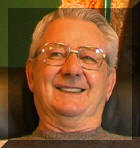|
Monday 24th January 2005
Richard Bowen Judo Historian,
Founder of the Kano Society and Vice President of the Budokwai passed away
in his sleep early this morning. |
Dickie Bowen
|
From Syd Hoare
Dickie Bowen 1926 – 2005It is with deep sadness I have to announce the death of British Judo pioneer Richard (Dickie) Bowen 4th Dan and Vice-president of the Budokwai. Dickie started Judo at the Budokwai in 1949 and progressed to 2nd Dan. At the age of 30 he was selected to represent Great Britain in the 1956 First World Judo Championships held in Japan. This was in the days of no weight categories and the championships were fought down to one man with no repechage system. Dickie who was a light middleweight got through the first two rounds which placed him in the last eight and then he lost to Courtine of France. In the final, Natsui of Japan beat Yoshimatsu also of Japan. Third places went to Courtine and Geesink of the Netherlands.
After these world championships Dickie stayed on in Japan for two years training hard at the Kodokan as a Kenshusei (special research student). He then returned to the UK as a 4th Dan and with his Japanese wife Ayako. He subsequently carried on teaching at the Budokwai and was very active in the BJA where he was chairman of the Technical Committee for some time.
Dickie wrote quite a lot about judo both in book form and for the Budokwai Bulletin. Heated technical arguments about judo technique and coaching were common in the Sixties and Dickie was proud to be one of the so called ‘Tradmad trio’ which also included myself (I forget who the other one was). Dickie was certainly a traditionalist. At a time when the BJA massively hiked up the grades with its blanket promotions Dickie steadfastly refused to accept his promotion while all around him others soared to dizzy heights. He preferred his Japanese grade.
He later became a very successful business man running a chain of shops selling Japanese goods but towards the end of his life he got more involved with writing about the history of British Judo and the Budokwai. This work though never published grew to a massive half a million words or so. He was meticulous in his research and was a frequent visitor to all the government record offices and major libraries. I understand that in the last year he arranged for his huge library of judo books and his history book to be sent to Bath University for posterity.
He was a quiet, generous man but very fierce about his judo. He believed that there was a moral side to judo and would not tolerate dodgy conduct from others in his immediate judo world. He leaves behind his wife Ayako and his son Sean. British judo has lost another star in its firmament. Syd Hoare
|
|
|
My First Instructor - John Pinnell Dickie Bowen was my first instructor at the Budokwai, when I started judo as a junior some 40 years ago. I was impressed by his passion when teaching us youngsters, a topic which he clearly loved. The patience he applied in getting us to use our bodies in the right way, to get the timing and movement right. The way he persevered, especially with the less athletically inclined again reflected his love for the sport and his keenness to help promote his passion to others. His credentials were similar to the majority of the other instructors at the club, in as much as he had spent a number of years training in Japan. What was less well known was that he had represented Great Britain in the First World Championships in 1956. A fact that I discovered much later and not from Dickie who tended to be very modest about his own achievements. It is interesting to think back to those early days of judo, the dedication needed to achieve selection to represent your country and then win through to the last eight of an international open weight competition. Not being over awed by others in the competition, who were of a considerably greater stature, including a young Anton Geesink. In addition, he did not have the benefit of the facilities available now for sportsmen and women - the coaching support structure, sponsorship and other funding. You can see glimpses of Gunji Koizumi and Trevor P Leggett in Dickie's philosophy for life and for whom I know he had great affection. His dedication to the promotion of judo through the sponsorship of events at the Royal Albert Hall, to articles in the Budokwai bulletin and to serving on the technical committee of the British Judo Association. Precisely what impact he had on the British judo scene is hard to predict but it was obviously of considerable signficance and he was a much respected figure, held in high regard, by his many friends in the UK and the international judo community. Over the last few years we have talked on a regular basis and whilst the focus ended up on judo it covered a wide range of topics. In a typical Dickie fashion it would often start off about a particular nugget of information that he had discovered and which he wished to share. In looking back over these few words I have written, I wonder whether I can do justice to the man, can I get the balance right, place the right emphasis on what I wish to say and what he achieved in his life time. The more you reflect, the more you are aware of those great areas of his life as a businessman as a husband and father where you have little knowledge. So maybe the simplest way to sum him up was as a mentor and a friend.
|
|
